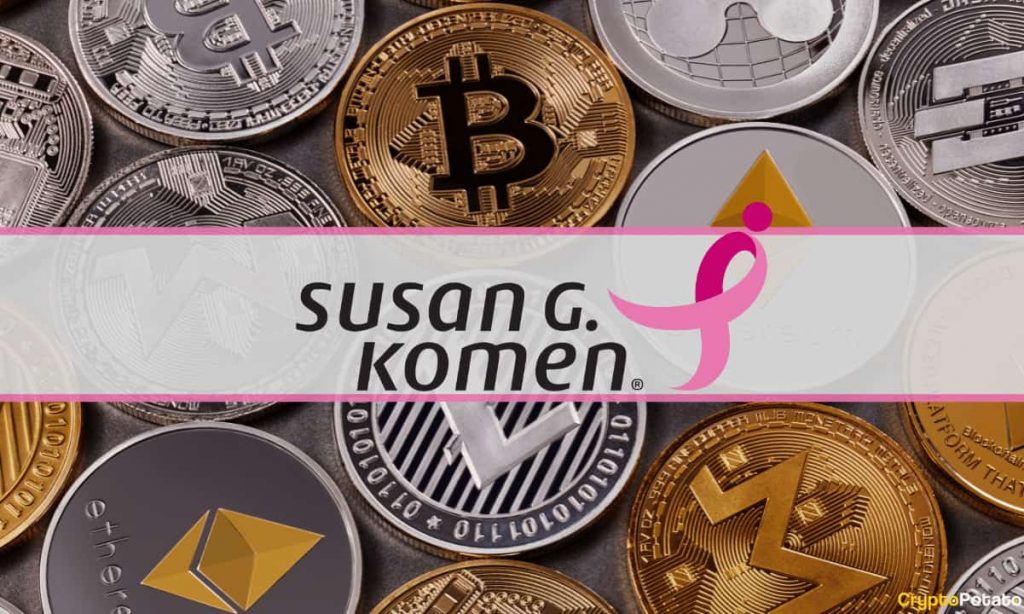Susan G. Komen Organization Now Accepts BTC, ETH, SHIB, and Other Cryptocurrencies for Donations

The American breast cancer organization – Susan G. Komen (also known as Komen) – enabled people willing to support the cause to donate digital assets instead of fiat currencies. The partner in the initiative is the donation platform – The Giving Block.
Susan G. Komen announced the new additions on its Twitter page. The organization raised hopes that this new type of donation will provide “more ways to fight breast cancer and save lives.”
🚨 Breaking news🚨Through a partnership w/ @TheGivingBlock, Susan G. Komen now accepts #cryptocurrency as a form of donation. You can donate #Bitcoin, #Ethereum and more. This will give us more ways to fight #breastcancer and save lives.Donate today 👉 https://t.co/gvWgHlmzDd pic.twitter.com/bxhZOy23ec
— Susan G. Komen (@SusanGKomen) December 26, 2021
The entity’s associate – The Giving Block – revealed that the accepted cryptocurrencies are more than 50. Some of the most popular examples include Bitcoin (BTC), Ether (ETH), Litecoin (LTC), Dogecoin (DOGE), and Shiba Inu (SHIB).
Interestingly, people are able to donate with some of the most popular Metaverse tokens as well – The Sandbox (SAND) and Decentraland (MANA).
The Giving Block noted that according to current US law giving away digital assets is more tax efficient and could “save you money.”
“The IRS classifies cryptocurrency as property for tax purposes, which means it is typically the most tax-efficient way to support your favorite cause,” the company explained.
Not long ago, another charity organization – Nicklaus Children’s Hospital Foundation – announced it accepts donations in cryptocurrencies. The non-profit entity that focuses on providing better healthcare for children embraced Bitcoin (BTC), Ether (ETH), Bitcoin Cash (BCH), Dogecoin (DOGE), and more.
Last month, the largest grantmaker in the United States – Fidelity Charitable – revealed it had accepted more than $270 million in digital assets since the beginning of 2021. The previous record was set in 2017, when the organization received $69 million in cryptocurrencies.















